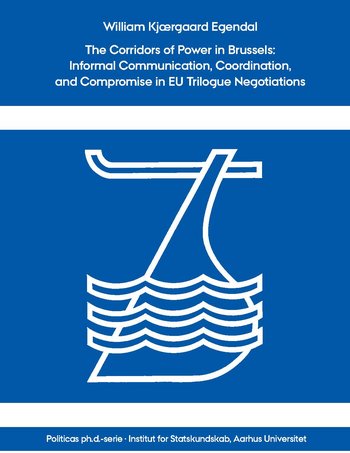William Kjærgaard Egendal
The Corridors of Power in Brussels: Informal Communication, Coordination, and Compromise in EU Trilogue Negotiations

When new EU laws are passed, they affect 450 million people and set new rules for the world’s largest trading bloc. This dissertation examines how EU legislation is negotiated in trilogue meetings where representatives of the European Commission, the European Parliament and the Council of Ministers discuss compromise proposals to facilitate early adoption. Though trilogues are used for most EU legislation, we know little about how they are conducted in practice. Through comprehensive interview material and ethnographic fieldwork in the ‘EU bubble’, this dissertation takes a detailed look at these widespread yet opaque meetings. Theoretically, the dissertation draws on rational choice, sociological institutionalism, and diplomatic practice theory to examine how trilogues are conducted and how central negotiators view their own roles in them. The analysis is structured to follow a trilogue process from the preparatory phase within each institution to the final marathon meeting where a compromise is hammered out – and the subsequent technical work to settle the details. In addition to its detailed description of the trilogue process, the dissertation makes three contributions to the literature on EU decision-making. First, it argues that the Commission should be treated as a negotiator rather than merely an honest broker. Second, it introduces the pressure configuration framework, which offers a promising means of specifying the cross-pressures facing negotiators in trilogues. Finally, it demonstrates that though trilogues are informal, negotiators view them as highly formalized. As such, more attention should be devoted to how negotiators perceive and navigate (in)formality in practice.
![]() Ophavsretten tilhører Politica. Materialet må ikke bruges eller distribueres i kommercielt øjemed.
Ophavsretten tilhører Politica. Materialet må ikke bruges eller distribueres i kommercielt øjemed.